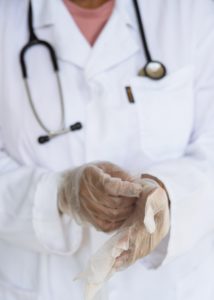Ahead of World Contraception Day, on 26 September, non-profit Witkoppen Clinic is calling for increased awareness of available contraceptive methods in the country.
The clinic aims to enable young South Africans to make informed decisions about their sexual and reproductive health, in order to reduce unwanted pregnancies, as well as the transmission of sexually transmitted infections (STIs).
“With the outbreak of Covid-19, we’ve seen a decrease in the number of people visiting the clinic for family planning. With lockdown restrictions easing up, we want to encourage people to educate themselves, or to contact their healthcare provider to find out which contraception method best suits their health and lifestyle,” says Thembisile Makhomboti, Head of Preventative Department at the clinic.

The most common methods of contraception available in South Africa include male and female condoms; contraceptive injection, patch, or implant; oral contraceptives (the pill); IUD loops; emergency contraceptives (the morning after pill); and vasectomy.
“The vast majority of unintended pregnancies are among people who are either not using any contraception or are using it inconsistently. Unintended pregnancies contribute to poor maternal and child health and can carry steep social and economic costs for women in their families. For young people, in particular, contraception allows them to put off having children until they are ready to have a family,” says Makhomboti.
Unintended pregnancy is not the only risk of unprotected sex. Contraception is vital in the fight against HIV and other STIs, which can lead to cervical cancer, infertility, poor pregnancy and birth outcomes, as well as increased risk of acquiring new or transmitting existing STIs. Only male and female condoms provide dual protection against both unintended pregnancy and STIs, including HIV.

“Knowing your HIV status is another important aspect of contraception as it enables people to make informed decisions about preventing transmission. Anyone who has had unprotected sex should be tested so that they can get onto treatment, if necessary,” says Makhomboti.
Providing comprehensive healthcare to almost 7 000 patients every month, Witkoppen Clinic services around 1.4-million people from informal settlements in Diepsloot, Kyasands, and surrounding areas. The Clinic offers a range of healthcare services, including a family planning and well-woman clinic, HIV and TB testing, antenatal and prenatal care, a mental health clinic and dentist.

For more information on the other services Witkoppen Clinic provides, visit their website at www.witkoppen.org.za




